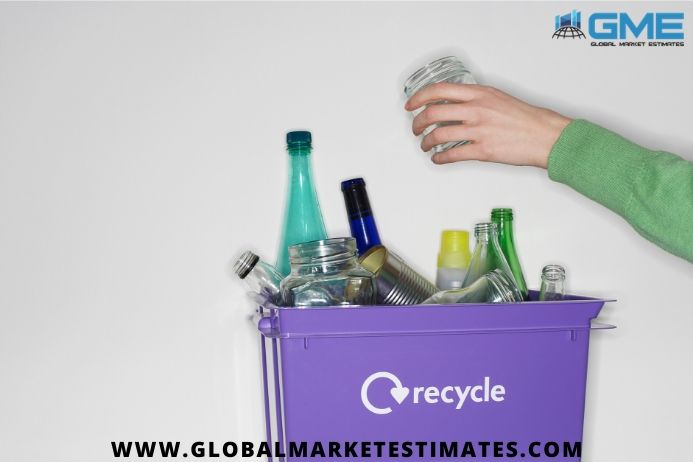Recycling glass is gaining popularity across the globe due to the environmental concerns and its amazing benefits. Glass can be recycled completely multiple times without any loss of quality or purity content. The process requires certain raw materials for the production of glass, such as, silica, soda ash, limestone, cullet, and so forth. Cullet refers to the furnace-ready recycled glass used for manufacturing glass. Recycled glass can substitute approximately 95 per cent of the raw materials used in actual glass production. This can help in significant conservation of silica, soda ash and limestone. All these raw materials are procured from Earth’s crust through mining and replenishing them taken hundreds of years. The usage of recycled product can help in reduction of mining and thereby, the associated transportation costs. It helps in minimizing then emission levels of carbon dioxide, sulfur dioxide and nitrogen oxide during glass manufacturing. Moreover, the usage of recycled glass during production can help glass manufacturers to reduce their energy costs as well as the furnace maintenance and repair costs. The afore-mentioned factors is likely to drive the global recycled glass market.

Increasing amounts of glass waste is one of the alarming issues faced globally. Since, most of these wastes are sent to landfills and incinerators, they are contributing to global warming and climate change. On the other hand, piling up of glass waste in landfills may also result in emission of greenhouse gases. The incinerators release huge amounts of pollutants in the surrounding environment. Glass recycling can play a pivotal role in waste management in the upcoming years during the need for efficient and environment-friendly measures. Most of the developed countries are promoting glass recycling through introduction of grants, schemes and funds. However, the global recycled glass market may face issues concerning the manufacturing process. These complications are around the sorting and removal of contaminants from glass waste. Faulty waste collection system is responsible for the accumulation of contaminants in waste stream. If the percentage of contaminants is more, the cost of contaminant removal process would thereby be increasing the complexity. Hence, it is recommended that the recycled glass manufacturers must maintain the regulatory norm to reduce complexity and maintain financial viability of the complete production process. Another significant factor which may negatively influence the market growth is lack of investments.
A recent report on the global recycled glass market was published by Global Market Estimates Research and Consultants (GME) in March 2020. The report classifies the global recycled glass market on the basis of several factors. On the basis of form product, the global recycled glass market is segmented into glass fines and glass cullet. On the basis of application, the global recycled glass market is segmented into bottles & containers, fiberglass insulation, abrasives, and filtration, among others. Lastly, on the basis of region, the global recycled glass market is segmented into North America, Europe, Asia Pacific, Central & South America and Middle East & Africa. The countries covered include: U.S., Canada, Mexico, Germany, France, UK, Italy, Spain, China, India, Japan, South Korea, Australia, Brazil, Saudi Arabia, UAE, and South Africa among others.
Some of the key players operating in the recycled glass market are Balcones Resources, Strategic Materials, Inc., ACE Glass Recycling, Ripple Glass, Pace Glass Inc., Gallo Glass Company, Bradish Glass, Inc., 2M Resources Inc., CAP Glass, Momentum Recycling LLC, and Dlubak Glass Company among others.
